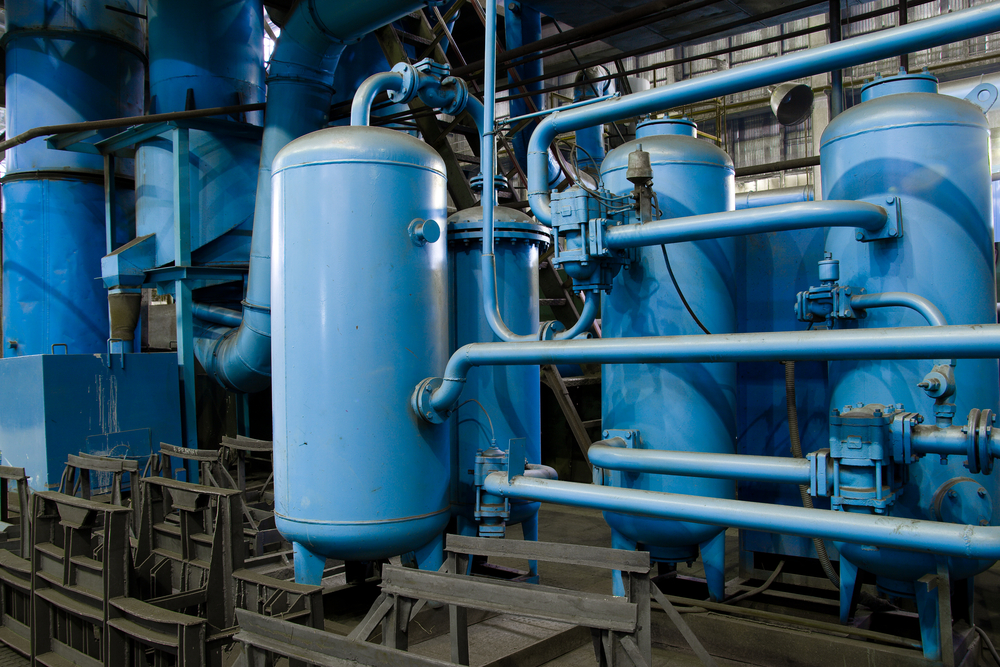Top Methods for Addressing Low Water Pressure in Your Home
Top Methods for Addressing Low Water Pressure in Your Home
Blog Article
What are your ideas about 10 Reasons for Low Water Pressure in Your House?

Low water pressure in your house can be an irritating trouble, affecting every little thing from showering to washing dishes. If you're experiencing weak water circulation, there are numerous possible reasons and solutions to check out. In this overview, we'll go over common reasons for low water pressure and sensible actions to attend to the problem effectively.
Intro to Low Water Pressure
Low tide pressure takes place when the flow of water from your taps, showers, and other fixtures is weak than usual. This can make everyday jobs much more tough and less reliable. Comprehending the causes of low water stress is crucial to discovering the ideal remedy.
Common Root Causes Of Low Water Pressure
Pipe Obstructions
In time, pipelines can end up being clogged with mineral deposits, debris, or particles, limiting the circulation of water. This is an usual problem in older homes with galvanized steel pipelines.
Rust
Corrosion within pipelines can lead to leakages and minimized water stress. Rust build-up can constrict water flow, specifically in maturing plumbing systems.
Faulty Stress Regulatory Authorities
Stress regulatory authorities are accountable for maintaining consistent water pressure in your home. If they malfunction, it can cause low water pressure or unequal flow throughout your house.
Community Supply Of Water Issues
Occasionally, the issue exists outside your home. Community water problems, such as main line leakages or upkeep work, can briefly decrease water stress in your area.
Just How to Detect Low Water Stress
Inspecting Taps and Components
Start by testing the water stress at various faucets and components throughout your home. If the problem is separated to specific areas, it might suggest localized troubles.
Evaluating Pipelines
Examine visible pipes for indicators of leaks, corrosion, or clogs. Take notice of any type of uncommon sounds, such as knocking or rattling pipelines, which could show problems within the plumbing system.
Consulting with a Plumber
If you're incapable to determine the reason for low water pressure, take into consideration hiring a professional plumber to perform an extensive assessment. They can determine underlying concerns and recommend appropriate services.
Do It Yourself Solutions to Take Care Of Low Water Stress
Cleaning Aerators and Showerheads
Mineral deposits can build up in aerators and showerheads, decreasing water flow. Eliminate and clean up these components on a regular basis to improve water stress.
Flushing Hot Water Heater
Sediment build-up in the hot water heater can restrict flow and lower performance. Flushing the container regularly helps eliminate debris and preserve optimal performance.
Examining Pressure Regulatory Authority
Make certain that the stress regulatory authority is functioning appropriately. Changing or replacing the regulatory authority can assist bring back appropriate water pressure throughout your home.
Clearing Up Clogs in Water Lines
For minor clogs, attempt making use of a plumbing serpent or chemical drainpipe cleaner to clear obstructions in pipes. Be cautious when using chemicals and comply with security standards.
When to Call a Specialist Plumber
If do it yourself initiatives fail to settle the problem or if you suspect substantial plumbing troubles, it's finest to seek help from a qualified plumber. They have the experience and tools to attend to intricate concerns securely and successfully.
Preventive Measures to Maintain Water Pressure
Routine Upkeep
Set up routine maintenance for your plumbing system to prevent concerns such as corrosion, leakages, and clogs. Attending to minor troubles early can help stay clear of even more significant repair services later.
Setting Up a Stress Booster
Think about setting up a stress booster pump to improve water pressure in areas with continually reduced flow. This can be specifically useful for multi-story homes or residential or commercial properties with high-demand fixtures.
Monitoring Water Usage
Be mindful of water use routines and stay clear of overtaxing the plumbing system. Straightforward modifications, such as staggering showers and laundry tons, can assist preserve appropriate water pressure.
Conclusion
Handling low water stress can be frustrating, however recognizing the underlying reasons and executing appropriate options can restore optimal flow throughout your home. Whether it's cleaning up aerators, inspecting pipes, or talking to a plumber, taking aggressive actions can ensure a consistent supply of water for your day-to-day requirements.
FOUR WAYS TO FIX LOW WATER PRESSURE NOW
Turning on a shower or faucet only to find the water comes out in a sad, slow drizzle is never a good feeling. How exactly are you supposed to wash a pan or take a quick shower when it takes 10 minutes just to rinse off a little soap? The good news is that when your water pressure is bad, there's always a cause: typically one that can be easily fixed. Here are some of the most common causes of low pressure and what you can do to fix the issue:
DEBRIS AND MINERAL DEPOSIT BUILDUPS
If you notice low water pressure from just one or two of the fixtures in your house, the problem likely has to do with debris buildup. Water is full of minerals and other debris, all of which can accumulate in your pipes and on your fixtures. This can cause a blockage that affects how much water flows through. To fix this, try filling a small plastic bag with white vinegar, and use a rubber band to hang it around your showerhead or faucet. Let the head of the fixture soak for a few hours, and the vinegar should loosen the deposits.
WATER LEAKS
Leaks are another common cause of low water pressure. If water is flowing out of your plumbing through a hole or crack before it can reach your fixture, the pressure coming out of the faucet or showerhead will be lower. A plumbing professional is your best bet for finding and repairing a leak in your water supply pipes.
Leaks are another common cause of low water pressure. If water is flowing out of your plumbing through a hole or crack before it can reach your fixture, the pressure coming out of the faucet or showerhead will be lower. A plumbing professional is your best bet for finding and repairing a leak in your water supply pipes.
FOUR WAYS TO FIX LOW WATER PRESSURE NOW
Turning on a shower or faucet only to find the water comes out in a sad, slow drizzle is never a good feeling. How exactly are you supposed to wash a pan or take a quick shower when it takes 10 minutes just to rinse off a little soap? The good news is that when your water pressure is bad, there's always a cause: typically one that can be easily fixed. Here are some of the most common causes of low pressure and what you can do to fix the issue:
DEBRIS AND MINERAL DEPOSIT BUILDUPS
If you notice low water pressure from just one or two of the fixtures in your house, the problem likely has to do with debris buildup. Water is full of minerals and other debris, all of which can accumulate in your pipes and on your fixtures. This can cause a blockage that affects how much water flows through. To fix this, try filling a small plastic bag with white vinegar, and use a rubber band to hang it around your showerhead or faucet. Let the head of the fixture soak for a few hours, and the vinegar should loosen the deposits.
WATER LEAKS
Leaks are another common cause of low water pressure. If water is flowing out of your plumbing through a hole or crack before it can reach your fixture, the pressure coming out of the faucet or showerhead will be lower. A plumbing professional is your best bet for finding and repairing a leak in your water supply pipes.
Leaks are another common cause of low water pressure. If water is flowing out of your plumbing through a hole or crack before it can reach your fixture, the pressure coming out of the faucet or showerhead will be lower. A plumbing professional is your best bet for finding and repairing a leak in your water supply pipes.
A VALVE ISSUE
If you have low water pressure throughout your home, check your main shut-off valve to make sure it's completely open. You may also want to see if there's a pressure-reducing valve installed. If there is, have a plumber help you adjust the settings to get the pressure you're looking for.
OTHERS USING WATER
Believe it or not, your low water pressure could be caused by your neighbors. If you notice low pressure at certain times of day, it may be because you and the people living next to you have similar schedules - when everyone is showering at the same time, the pressure will be lower in every home. Low pressure throughout the neighborhood may also be caused by an issue with your municipal water supply. If that's the case, call the supplier to see if they're working on the issue.
https://www.rotorooter.com/blog/water-leaking/low-water-pressure-fixes/

I was made aware of that article on 9 Reasons for Low Water Pressure in Your House through a buddy on a different web property. Are you aware of somebody who is fascinated with the niche? Do not hesitate to promote it. Many thanks for your time. Revisit us soon.
Book Report this page